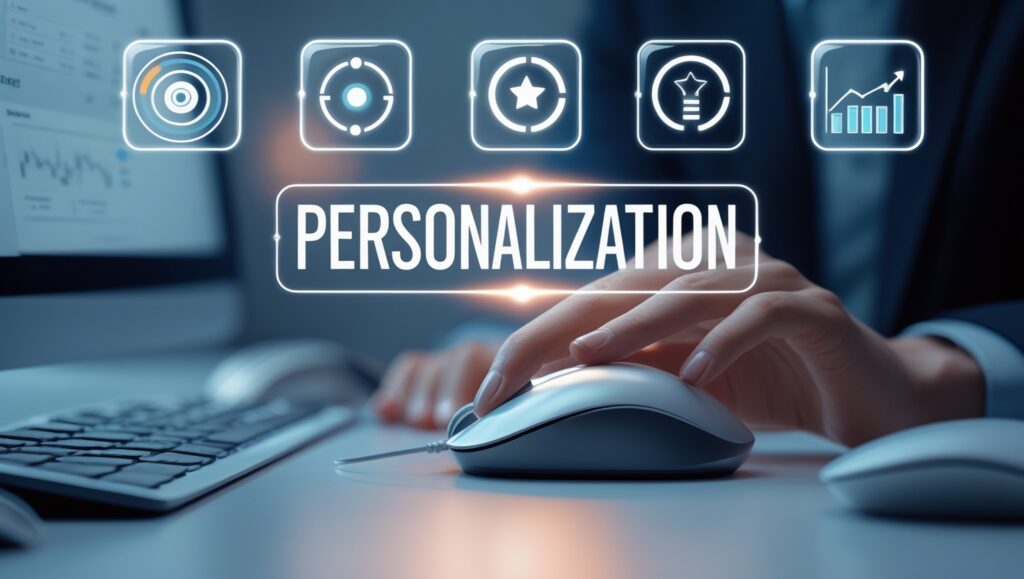click to get service View profile
AI in digital branding is transforming the way brands connect with audiences by delivering smarter, personalized, and data-driven strategies. Discover how artificial intelligence is reshaping branding in 2025 with innovative tools, automated campaigns, and future-proof solutions to keep your brand ahead of the competition.
AI has been taking over and changing the digital branding and marketing world with much aplomb.
According to Marketing Hire, some of the top ways marketers are using AI in digital branding include 44% for content summarization, 41% for creative inspiration, 33% for personalization, 30% for research, 30% for faster content creation, and 17% for improving customer service. These stats clearly show how AI in digital branding is helping businesses streamline their workflows, create better content, and deliver more personalized customer experiences..
So, it won’t be wrong to conclude that the digital marketing world has been banking on AI in a massive way to revolutionize customer engagement, optimize ad targeting, automate content creation, and drive personalized marketing strategies.
When it comes to personalized marketing strategies, AI ensures they reach the right people with relevant messages, improving engagement and ROI for businesses.
For instance, the U.S. market boasts a diverse and multicultural population, allowing brands more creative freedom to engage with audiences. In contrast, brands in the Dubai market must carefully respect cultural and religious values, including Islamic principles. This is where AI in digital branding plays a crucial role—by analyzing the unique characteristics of different markets, AI in digital branding ensures that personalized content aligns with local preferences and cultural sensitivities, helping brands connect more effectively with their target audience.
Here’s an in-depth look at how AI takes digital marketing to the next level.
1. Hyper-Personalized Customer Experiences
These days, when you sit in front of a TV, streaming services offer a wide range of content tailored to your personal preferences. Think of popular platforms like Netflix and Amazon Prime in the U.S. market! It almost feels like they can read your mind, delivering exactly what you love—whether it’s war movies, entertainment films, or trending web series. Similarly, AI in digital branding works the same way by understanding audience behavior and delivering personalized brand experiences, ensuring that the right content reaches the right people at the right time.
Yes, that’s the magic of AI! Through powerful AI-driven algorithms, marketers can deliver highly personalized content to their target audience—whether it’s tailored ads, product recommendations, or custom experiences—all by analyzing user data. AI in digital branding takes this personalization to the next level, helping brands serve exactly what their audience wants. This tailored approach is especially visible in competitive markets like the U.S., where customers expect customized interactions across every channel, making AI in digital branding a game-changer for modern marketing.
Brands like Amazon and Netflix’s ability to offer hyper-personalized experiences help them establish meaningful customer relationships, build brand loyalty, and make customers feel understood and valued.
AI’s personalization feature is being widely explored in the luxury and retail markets, where
AI in digital branding goes beyond just content and visuals—it also analyzes customer behavior to deliver highly personalized product recommendations. Take brands like Ikea or the Nike Fit app, for example. Using computer vision and machine learning, Nike Fit suggests the perfect shoe size for each customer, creating a smooth and customized shopping experience. This is a prime example of how AI in digital branding helps brands offer smarter, more tailored solutions that truly meet customer needs.
Further, the brilliance of AI’s hyper-localized personalization feature is visible in diverse markets like Dubai, where marketers tailor content for different population segments.
For instance, a brand may use AI to tailor branding content nationality-wise, such as in English for expatriates, Arabic for local Emirati customers, and Hindi for Indian tourists.
Alongside hyper-personalization, another key advantage of using AI for branding include quick content creation.

2. Quick Content Creation and SEO Optimization
Not long ago, creating content meant spending hours in front of your PC researching, writing, and rewriting. But not anymore! Thanks to generative AI tools like ChatGPT, high-quality content creation has become effortless, especially in markets like the USA. Whether it’s blog titles, outlines, emails, or social media ads, these tools can generate engaging content within seconds. This is another powerful example of how AI in digital branding is transforming the way brands produce and manage content, making the entire process faster, smarter, and more efficient.
While AI in digital branding speeds up content creation like never before, it doesn’t mean you can just copy-paste whatever AI tools generate. To truly connect with your audience, you still need to add a human touch—making the content more relatable, thoughtful, and aligned with your brand’s unique voice. That said, there’s no denying that AI in digital branding has cut down content development time and effort by nearly half, allowing brands to focus more on creativity and strategy while AI handles the heavy lifting.
Another big plus is that the content generated using these AI tools is in keeping with SEO strategies. AI-powered SEO tools offer concrete strategies that help businesses rank well in search engines.
In addition to content creation, AI in digital branding also plays a big role in visual branding. Today, logos and graphic elements can be generated in bulk using simple style, color, and preference prompts. For example, if a brand needs an ad designed specifically for Emirati audiences in Dubai, AI in digital branding can help craft Arabic-friendly visual content. From selecting culturally appropriate fonts and symbols to designing layouts that respect local traditions, AI ensures that every visual feels authentic and engaging for the target audience.
Long story short, AI in digital branding offers faster, visually appealing, culturally appropriate, and cost-effective branding solutions. Beyond just personalization and content creation, branding agencies are now using AI in digital branding through smart chatbots to help businesses engage with customers in more meaningful and efficient ways. Whether it’s 24/7 support or interactive conversations, AI is redefining how brands connect and build lasting relationships with their audience.
3. Quality Customer Engagement
AI chatbots complement customer engagement activities these days, and for good reason.
One of the biggest advantages of AI in digital branding is its ability to provide 24/7 customer support and engagement for businesses. It’s no surprise that 74% of customers said they’d choose a chatbot over a human representative for simple questions. Even more, 62% of people would rather chat with a bot than wait 15 minutes for a human response. With AI in digital branding, brands can keep their audience engaged around the clock, delivering quick, reliable, and seamless support whenever it’s needed.
Chatbots are sought after in all markets, including the U.S. and Dubai, where customers demand instant answers to their queries.
Beyond chatbot support, AI in digital branding empowers businesses with advanced features like predictive analysis and sentiment tracking. For larger teams, predictive analytics help forecast upcoming trends, identify high-value customers, anticipate their needs, and engage them proactively. With AI in digital branding, brands can stay one step ahead by understanding customer behavior and delivering exactly what audiences are looking for—even before they ask.
Sentiment analysis powered by AI in digital branding helps track how customers feel about a brand by analyzing data from social media posts, reviews, feedback, and more. This real-time insight allows businesses to tweak and improve their customer engagement strategies on the spot, ensuring they maintain positive brand perception. Up next, we’ll dive deeper into how AI in digital branding supports smarter data-driven decision-making for long-term success.

4. Use Data for Informed Decision Making in Digital Branding
AI in digital branding uses powerful algorithms to collect and analyze massive datasets, allowing brands to make smarter, data-driven decisions. By studying social media posts, website traffic, customer reviews, and other key touchpoints, AI in digital branding helps identify market trends, audience preferences, and shifting behaviors. This gives businesses the insights they need to stay ahead of the competition and tailor their strategies for maximum impact.
These tools also help target the right audience, craft compelling ad campaigns, and improve conversion rates.
Conclusion of How AI is Changing Digital Branding:
AI is here to stay and will soon become the mainstay of digital branding and marketing. It’s high time businesses adopt AI if they haven’t tried it.
Looking ahead, only the brands that fully embrace AI in digital branding will win customer trust and loyalty. Unlike traditional marketing methods, AI’s personalized branding strategies take the customer experience to the next level with smarter, more relevant interactions. From a business perspective, AI in digital branding offers rapid content creation, real-time optimization, and data-driven decision-making—all in one powerful package. Adopting AI is truly a win-win, helping brands grow while delivering exactly what customers want.

